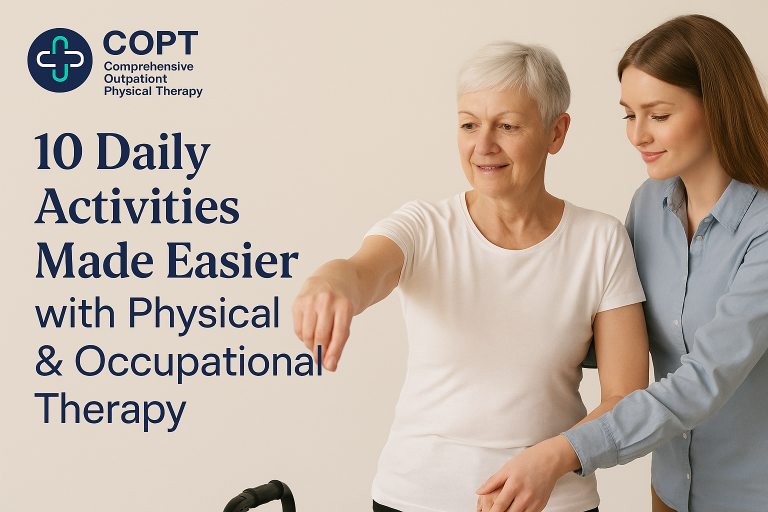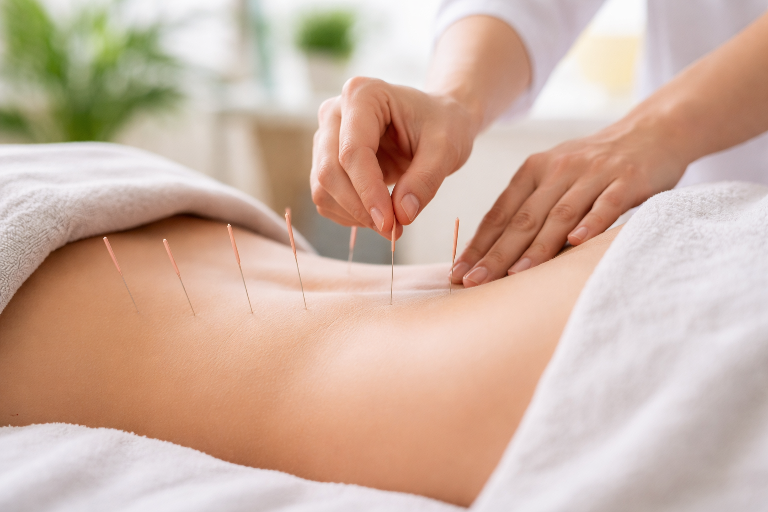
10 Everyday Tasks Physical and Occupational Therapy Can Help You Improve
Are simple tasks like getting dressed, cooking, or climbing stairs starting to feel difficult? Whether due to injury, surgery, aging, or chronic conditions, everyday activities can become frustrating — but they don’t have to stay that way. With the help of physical and occupational therapy, you can regain confidence, movement, and independence.
In this article, we’ll explore 10 daily activities that therapy can improve, and how we help our patients get back to doing what they love — safely and confidently.
1. Getting In and Out of Bed or a Chair
Therapists work on building strength, balance, and safe transfer techniques to make mobility easier — especially after surgery or a fall.
2. Showering and Dressing
Occupational therapists teach strategies, recommend adaptive tools, and help improve coordination so you can manage personal hygiene tasks independently.
3. Walking Without Fear of Falling
Through balance training, gait correction, and strength exercises, physical therapy reduces fall risk and builds confidence when walking.
4. Using Your Hands for Daily Tasks
Struggling to open jars or write? Occupational therapy improves fine motor skills and hand strength for easier cooking, grooming, and more.
5. Climbing Stairs
Knee, hip, or ankle pain can make stairs hard. PT improves joint flexibility, muscle control, and weight-bearing ability to make stairs less painful.
6. Cooking and Cleaning
OT helps with ergonomics, energy conservation, and safe movement strategies so you can navigate the kitchen or tidy up without strain.
7. Lifting Objects
Whether it's groceries or grandkids, physical therapy ensures you’re lifting safely and with proper posture to avoid injury.
8. Driving or Community Outings
OT addresses visual, cognitive, and physical skills needed for driving or using public transportation safely.
9. Working or Typing at a Desk
Posture, repetitive strain, and workspace setup can all affect comfort. Therapy helps relieve pain and teaches proper ergonomics.
10. Enjoying Hobbies Again
Whether it's gardening, painting, or walking in the park, our goal is to help you return to meaningful activities — without pain or limitations.
When Should You Consider Therapy?
If you're:
- Avoiding certain tasks
- Feeling unsafe or off-balance
- Recovering from surgery or injury
- Living with arthritis, stroke, or neurological conditions
…then therapy might be right for you!
How We Help at COPT
At COPT, our licensed therapists personalize every plan to meet your goals. We combine hands-on treatment, guided exercises, and patient education to restore your daily function.
Sources:
https://www.cdc.gov/physicalactivity/basics/older_adults/index.htm







